Polished Welded Titanium Round Tubes Durable and Perfect for Medical Implants
|
Commercially Pure Titanium Grade 1 (Gr1) Rod and Round Bar: The Ideal Material for Medical ImplantsIntroduction to Commercially Pure Titanium (Grade 1) Titanium, often referred to as the "space-age metal," is widely used in a variety of industries due to its remarkable properties. Among the different grades of titanium, Grade 1 (Gr1), also known as commercially pure titanium, stands out for its exceptional biocompatibility, corrosion resistance, and low weight, making it the material of choice for medical implants and other biomedical applications. Gr1 titanium is composed of over 99% pure titanium, with very small amounts of iron and other trace elements. It is the most malleable and ductile form of titanium, and its properties make it an ideal material for implantable devices that require long-term stability and non-reactivity with human tissue. In addition to medical implants, Gr1 titanium is used in a variety of critical applications, but it is particularly favored in the biomedical and surgical fields due to its unique ability to integrate with bone and soft tissues, minimizing the risk of adverse reactions. This article will delve into the key properties, uses, and benefits of Gr1 titanium rods and round bars in medical implant applications, highlighting why it is a top choice for doctors, researchers, and patients alike.
Properties of Commercially Pure Titanium Gr1Chemical Composition (Gr1 Titanium)The composition of Grade 1 titanium is characterized by its purity, as it consists of 99% titanium with very low levels of impurities. This high purity is essential for its biocompatibility and resistance to corrosion. The typical composition includes:
The minimal presence of other elements in Grade 1 titanium allows it to exhibit superior mechanical and corrosion-resistant properties while ensuring the material is as non-reactive as possible within the human body. Mechanical Properties of Gr1 Titanium
Physical Properties
Why Gr1 Titanium is Perfect for Medical Implants1. Biocompatibility and SafetyOne of the most important factors when selecting materials for medical implants is biocompatibility—the ability to coexist with the body without causing harm. Titanium Grade 1 has a low reactivity with bodily fluids and tissues, ensuring it is not rejected by the body and does not cause inflammation or allergic reactions. This makes it suitable for a wide range of implantable devices, including joint replacements, dental implants, bone fixation devices, and surgical instruments. Because Gr1 titanium is non-toxic, it significantly reduces the risk of infection or rejection, making it an ideal material for implants that need to stay in the body for extended periods of time. 2. Excellent Corrosion ResistanceGrade 1 titanium is renowned for its exceptional corrosion resistance, which is crucial for medical applications. In the human body, titanium implants are often exposed to a variety of bodily fluids, such as blood, saliva, and urine, which can be corrosive to many materials. Titanium’s ability to form a passivating oxide layer (TiO₂) on its surface helps it resist corrosion, even in chloride-rich environments, such as saliva in dental implants or sweat in orthopedic devices. This corrosion resistance ensures that the implant remains functional and intact over long periods, reducing the need for frequent replacements and minimizing the risk of complications. 3. Lightweight and Strength-to-Weight RatioTitanium is a lightweight metal, with a density of 4.51 g/cm³, which makes it ideal for implantable devices that need to be both strong and easy to handle during surgical procedures. The lightweight nature of titanium helps reduce stress on surrounding tissues and bones, providing a comfortable fit and promoting faster healing. Moreover, Gr1 titanium’s strength-to-weight ratio ensures that it can handle significant loads and stresses without adding unnecessary weight. This is especially important for implants like hip replacements, where the implant must withstand repeated mechanical forces without failing. 4. Exceptional Fatigue StrengthMedical implants are subjected to repetitive stress and strain over time, particularly in weight-bearing applications such as orthopedic implants. Grade 1 titanium exhibits good fatigue strength, meaning it can withstand cyclical loading without developing cracks or fatigue failure. This makes Gr1 titanium a durable choice for implants that experience constant wear, such as knee joints, hip replacements, and spinal fusion devices. 5. Osteointegration (Bone Bonding)Titanium, especially Grade 1, is well known for its ability to achieve osteointegration, the process where bone tissue naturally grows and bonds with the titanium surface. This is particularly important for dental implants and orthopedic implants, where the implant needs to become firmly anchored into the bone structure. Titanium’s microscopic surface roughness promotes bone growth, making the implant a permanent part of the body. Applications of Gr1 Titanium Rods and Round Bars in Medical ImplantsGr1 titanium rods and round bars are extensively used in the manufacturing of medical implants and surgical tools. Some of the primary applications include:
ConclusionCommercially Pure Titanium Grade 1 (Gr1) is an ideal choice for medical implants and surgical tools due to its exceptional biocompatibility, corrosion resistance, lightweight nature, and outstanding mechanical properties. Its ability to integrate seamlessly with bone and tissue, coupled with its excellent performance in demanding biological environments, makes it one of the most trusted materials in orthopedic, dental, and spinal surgery. For implant manufacturers, surgeons, and patients seeking safe, reliable, and long-lasting solutions, Gr1 titanium rods and round bars continue to be a material of choice in the biomedical industry. |
||||||||||||||||||||||||||||||||
| Product Tags: Durable Polished Welded Titanium Round Tubes Perfect Polished Welded Titanium Round Tubes |
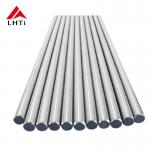
|
welded titanium bar | Titanium Alloys Bar at GR1 GR2 GR5 and GR7 |
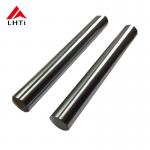
|
titanium welded bar| Maximize Efficiency with High-Performance Titanium Bar GR1 to GR7 |
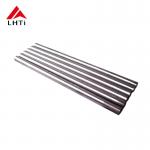
|
ASTM B338 and B337 Standards for High-Performance Titanium Bars | small diameter titanium bars |
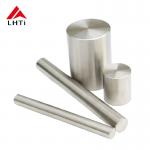
|
Manufacturing With Titanium Tube GR1 GR2 GR5 And GR7 | Titanium Alloy Tube | Titanium Welded Tube |
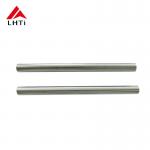
|
GR1 GR2 GR5 And GR7 Titanium Alloys The Optimal Solutions For High-Stress Conditions |
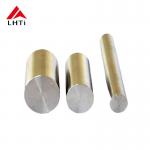
|
ASTM B338 and B337 Titanium Alloy Bars Essential for Marine and Industrial Applications |


